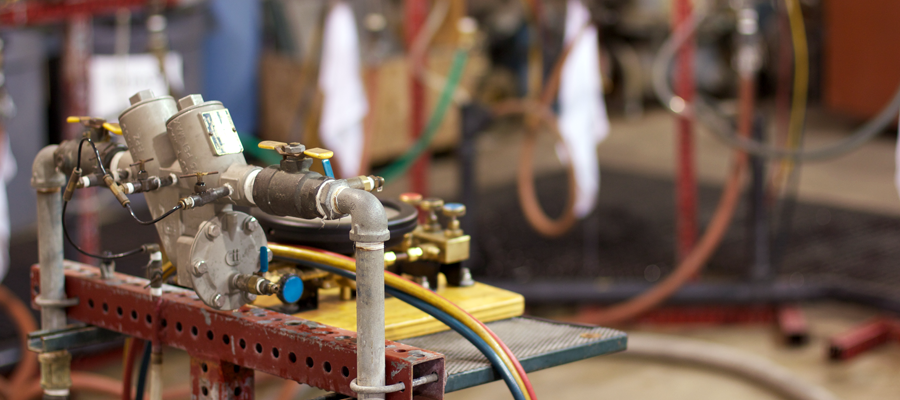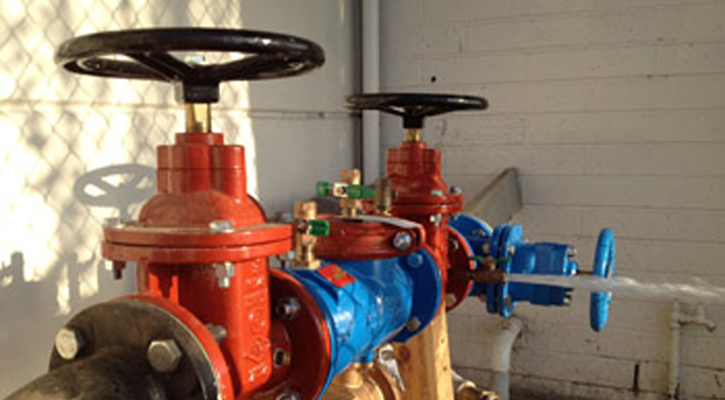Should I Perform a Backflow Test on My Water?
Should I Perform a Backflow Test on My Water?
Blog Article
Here in the next paragraph you might get a good deal of outstanding content regarding Backflow Assembly Testing.

Yes, you need to backflow test your home's water supply to ensure that the water is devoid of toxins and unsafe degrees of chemicals. Because of the equipment called for as well as space for error, you need to not try to perform heartburn testing on your own. We recommend that you call a specialist plumber every number of years to test your water.
What is Backflow?
In short, backflow is when water moves upwards-- the contrary instructions in the plumbing system. This is also known as "backpressure." When the water moves in this direction, it can mix with dangerous contaminants and pose a risk.
What Triggers Backflow?
A normal source of heartburn is a loss of water stress that creates the water to siphon back right into the water supply. An example is cleaning a paint pail using a hose. You load the paint pail up with water, leaving the pipe in the container. After a long time, there is a loss in water pressure as well as the tube begins to draw the water back into the water system. As you can picture, there are now chemicals from the paint that are entering the supply of water, possibly posturing a risk. Regrettably, many individuals are not even aware of backflow screening, but there are several reasons it's so important.
Heartburn Testing is Needed by Law in Specific Cities
Depending on where you live, you might in fact be called for by legislation to backflow test your legislation. Iowa City keeps a record of all homes offered by the city's water supply. The city needs that particular "high-hazard" facilities undergo heartburn testing. In some cases, properties such as homes and also apartment buildings are affected.
You Can Prevent Backflow
Harmful backflow is easily preventable if you have an expert plumber set up a heartburn tool. The plumber will likewise evaluate for backflow and identify if there is an energetic hazard. The primary purpose of a backflow tool is to avoid water from moving backward right into your water supply. Plumbers set up the tool on the pipes in your home to ensure that the water only flows in the proper instructions.
Backflow Can Effect Both You and Your City
Due to the fact that unsafe heartburn can affect the public water supply in enhancement to a single building, numerous cities develop heartburn standards. The good news is, modern-day cities have backflow gadgets in place that protect the water system that comes from most houses and business properties. The real hazard comes from watering systems, which can harm the water with hazardous plant foods, manure, and also various other chemicals.
Call a Plumber to Evaluate for Heartburn Prior To It is Too Late
A plumbing company can rapidly evaluate your residence's water to identify if there are any harmful chemical levels. And also if you do discover that your water has high levels of toxic substances, a plumber can quickly set up a backflow avoidance gadget.
Yes, you require to backflow test your residence's water supply to make sure that the water is free of toxic substances as well as hazardous levels of chemicals. A normal reason of backflow is a loss of water pressure that triggers the water to siphon back right into the water supply. After some time, there is a loss in water pressure as well as the hose pipe begins to suck the water back into the water supply. The primary objective of a heartburn device is to avoid water from streaming in reverse into your water supply. Several cities develop heartburn guidelines since unsafe backflow can affect the public water supply in enhancement to a single building.
WHY DOES BACKFLOW TESTING NEED TO BE DONE EVERY YEAR
What Is Backflow?
Toxic gas backing up into a building is one example of potential backflow issues, but backflow can occur in many other ways.
Backflow is generally referred to as the reversal of a liquid or gas in a plumbing system.
Most issues for the public occur with backflow resulting in contaminated drinking water. If you look up backflow issues online you’ll probably find references to “potable” water. That means drinking water.
There have been backflow issues in the past with drinking water. Chemicals, sewage and other contaminants have found their way into drinking water causing health issues for those that count on the fresh water.
What Causes Backflow?
In a residence or commercial building water generally flows one way. This normal flow is usually driven by consistent pressure in the water and waste system.
Anything that changes the normal pressure in the system can lead to backflow.
Fire hydrant use or malfunction can reverse the normal pressure in the system on a city line, but backflow can occur in a number of different ways.
Sometimes backpressure might be caused by someone using a garden hose and submerging the end of the hose in a pool of liquid. If pressure is lost the flow could reverse and contaminants could be released into the drinking water.
Anytime there is a connection between contaminants and the drinking water there is potential for a backflow issue. Sometimes these connections are not immediately obvious like the garden hose connecting to a building’s drinking water supply.
Backflow Regulations
The Environmental Protection Agency (EPA) provides guidelines and regulations for state and local governments regarding backflow. State and local governments also have their own guidelines and regulations for backflow prevention.
Arizona has its own backflow regulations.
Due to issues with backflow in the past, regulations require backflow preventer devices to be used in nearly all residential and commercial buildings.
A backflow preventer is a device that prevents backflow as cross-connection points where potential backflow issues may occur.
While backflow is not a common occurrence, preventers are in place to make sure there is no contamination should something malfunction or go wrong with a building’s water supply.

I ran across that piece of writing on Is backflow testing necessary? while doing a search on the web. Sharing is good. Who knows, you will be doing someone a favor. Many thanks for your time. Come back soon.
Call Today
Report this page